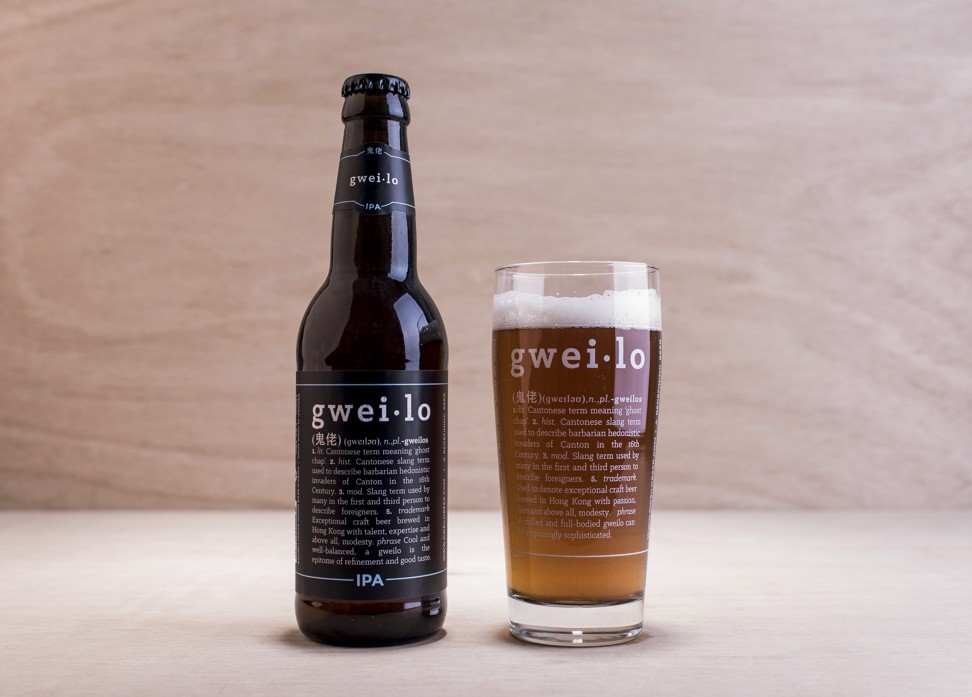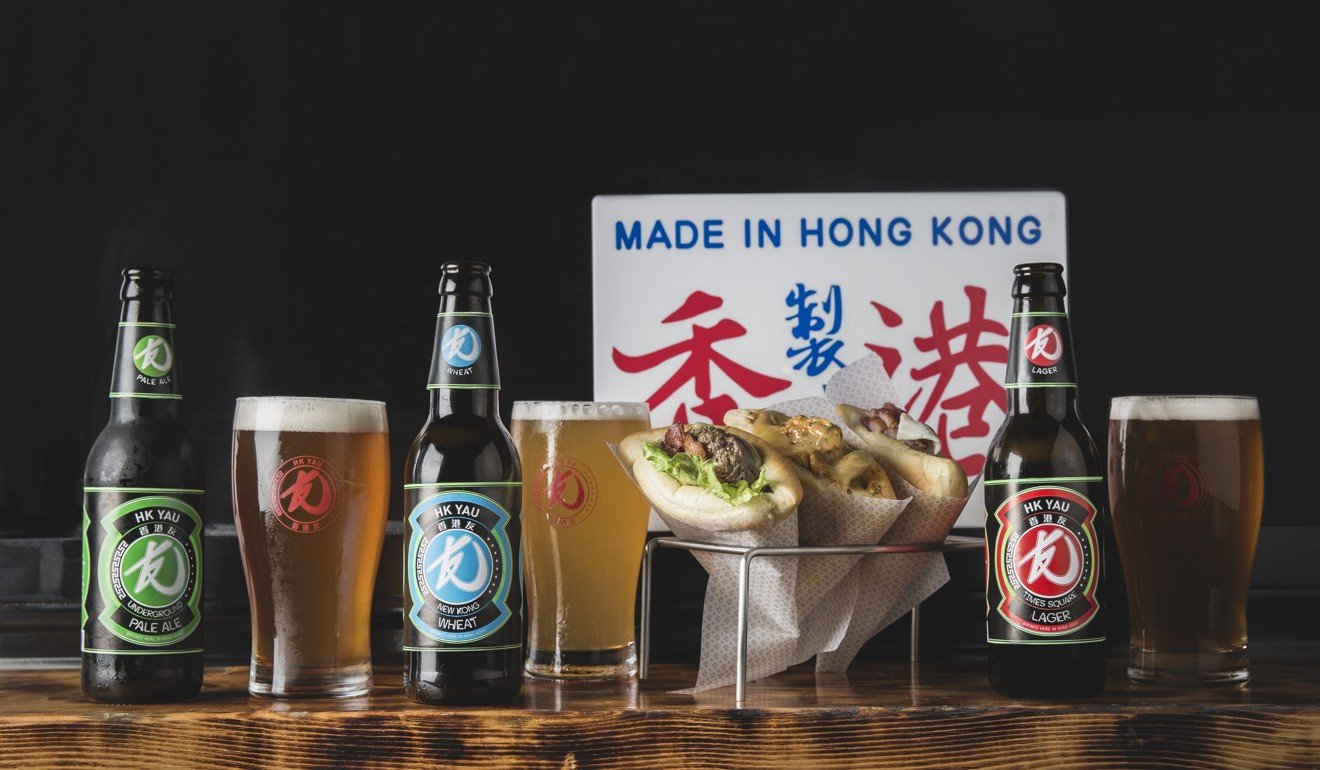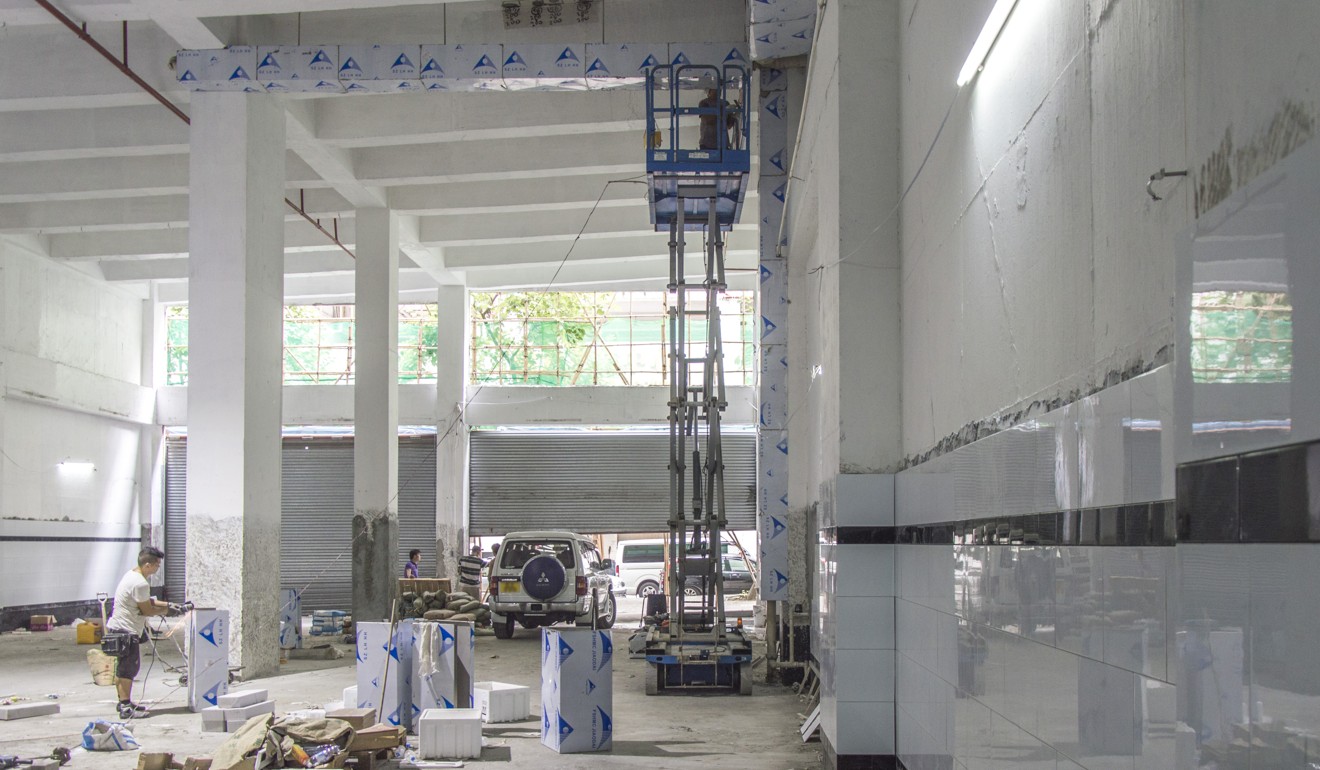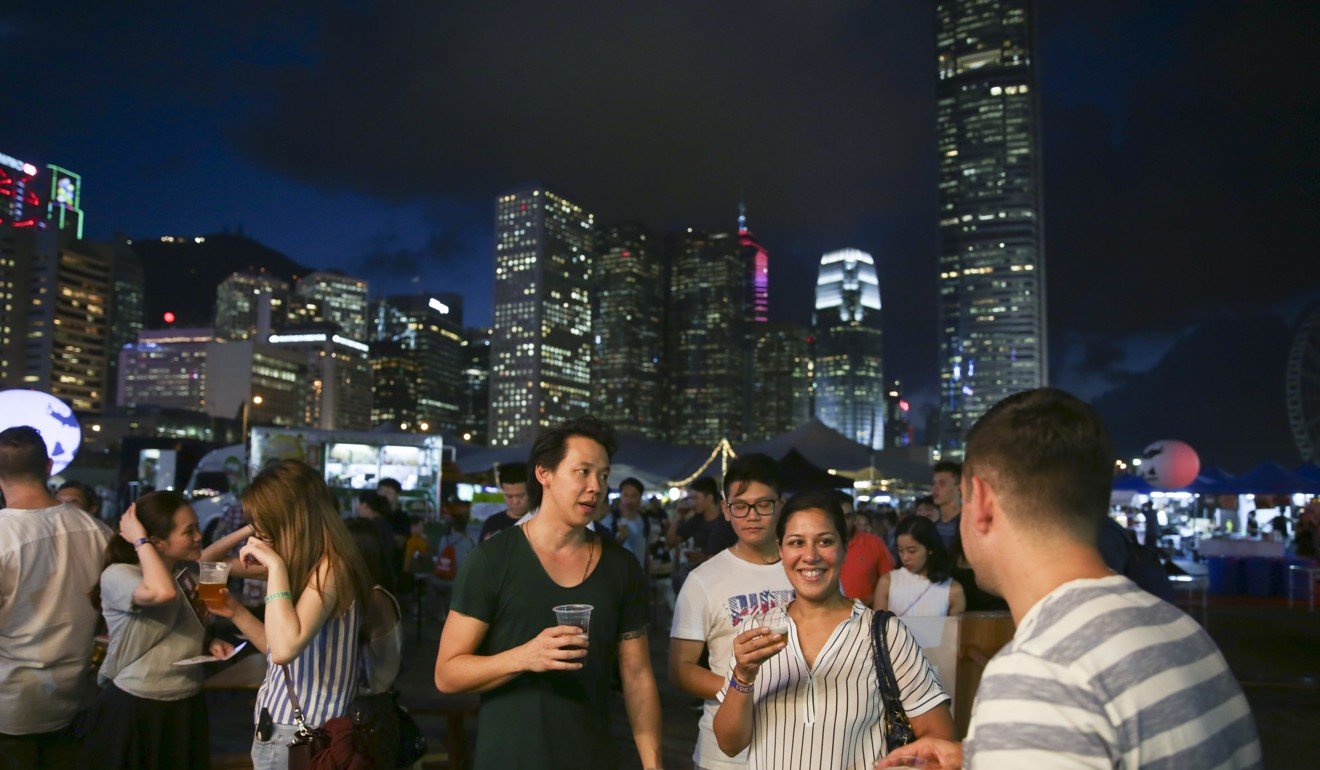
Gweilo Beer to open Hong Kong’s biggest craft brewery to keep up with demand
Founders of start-up that began operating from a spare bedroom in 2015 decided to set up their own state-of-the-art brewery after demand for their beers outstripped supply
Hong Kong’s Gweilo Beer, which was set up 2½ years ago in a spare bedroom, will open a new US$5 million craft beer brewery – Hong Kong’s largest – next summer to cater to rising demand for the company’s brews. The brewery, a hi-tech 14,000 sq ft facility in Fo Tan, is currently under construction.
Where the word gweilo comes from, and other names East Asians have for foreigners
Gweilo, founded by Ian and Emily Jebbitt, and their friend Joe Gould, currently contracts out production of its three beers to another Hong Kong brewery.
“We’ve now outgrown where we make our beer,” says Ian Jebbitt, an intellectual property lawyer, who began brewing beer at home with his father at the age of seven in Oxfordshire in the UK.
“Demand for Gweilo beer is seriously high and for the past year we’ve been at maximum capacity and can’t make any extra beer. We’ve always dreamed of having our own brewery and now we’re in a position to do that,” he says.

A casual chat with a friend and fellow home brewer from Mui Wo on Lantau Island, who works for his family’s construction company, BCI Engineering, led to the latest development, which will enable the company to produce 3,000 bottles of beer and 6,000 cans of beer every hour. Gweilo has also hired renowned US brewer Matthew Walsh.
Hong Kong’s Beertopia showcases rare craft brews to rival fine wines and whiskies
“When I came to Hong Kong as a lawyer in 2012 there was not a lot of local craft beer,” Jebbitt says. “At the time I joked to my wife that we should set up our own brewery.
“Then, 2½ years ago, I genuinely had a dream that I had ordered a pint of Gweilo beer at a pub. I said to my wife, ‘That’s a really good idea for a name for a beer, but it must have been done’. I’m a trademark lawyer, so I checked and it hadn’t, so I filed a trademark the next day.

Craft beer can mean different things to different people, but to me, craft beer means beer with no additives, no preservatives, made in smaller batches
“The word ‘gweilo’ has done a full U-turn from having negative connotations 30 years ago, to not having those connotations now … the trademark registry is quite conservative… and it did initially reject it on the basis of it being derogatory, but I spent three months putting together a legal submission showing how the word is not being used in this racially deprecating manner… and it was accepted.”
When the company launched, Jebbitt, 33, his wife, Emily, 34, a former schoolteacher, and Gould, 35, a designer, all British, had full-time jobs and so found themselves “working 17- to 18-hour days” for the first 18 months as they established the brand.
Hong Kong’s growing love of craft beer reflected at Beertopia, the festival that keeps getting bigger
They took beer samples to bars and restaurants in the evenings after work and at weekends. “I used to park the car packed with cool boxes full of beer, do a round of sampling, then go back and load up again,” Jebbitt says. “We probably got one out of 20 restaurants taking our beer. But we were lucky: we got about 150 customers in the first three months.”
The three Gweilo Beer owners decided to build their own brewery after demand outstripped supply of their three craft beers. He says the success of last month’s Beertopia – Hong Kong’s largest annual craft beer festival, first held in 2012 – showed Gweilo’s expansion plans were far from fanciful.

The two-day event at the Central Harbourfront attracted about 12,000 attendees, who sampled more than 500 different beers produced by about 40 exhibitors, including 15 local breweries and others from the US, Britain, Singapore, Thailand and Taiwan.
“It’s almost become an international beer festival,” Jebbitt says. “Every year it’s grown – interest is massively on the rise – which is good as it shows the interest in craft beers.
“Craft beer can mean different things to different people, but to me, craft beer means beer with no additives, no preservatives, made in smaller batches; it sounds corny, but with a bit of love and a bit of passion, it’s generally more flavoursome and unpasteurised, compared with the big, mass-produced macro beers that are pasteurised and often contain additives and preservatives.”
Hong Kong beer race requiring participants to drink a can every 400m draws criticism
“One of the principles of craft beer is that it’s about variety and giving customers choice. A lot of the big boys – Carlsberg, San Miguel, Heineken – pay people money to stock their beers and not stock other people’s beer; it’s not illegal in Hong Kong … The challenge is how to work with people that are tied to a big boy. Yet what’s happening – something that’s really good – is customers are voting with their feet and going elsewhere,” Jebbitt says.

“Bar owners are saying to the big boys, ‘I’ll take your beer, but you’ve got to let me use one tap for something else. Or bars are saying, ‘I don’t want it any more’.”
Carlsberg has also teamed up with New York’s Brooklyn Brewery to produce its own local craft beer, HK Yau, brewed by the Hong Kong Beer Company.
“A lot of people ask me if I’m intimidated,” Jebbitt says. “But I actually think it is a good thing because it validates what we are doing. It also helps promote craft beers. If Carlsberg is doing it, then it shows it recognises the future is craft beer, not just mass-produced beer.”
